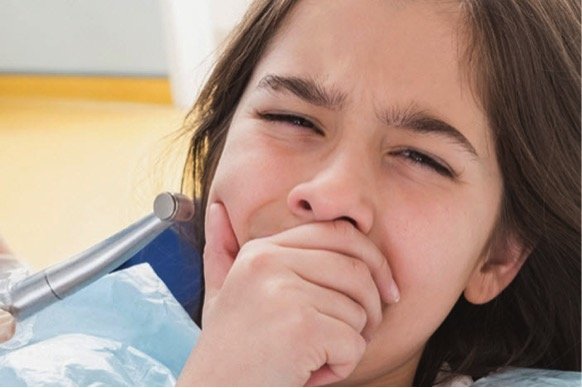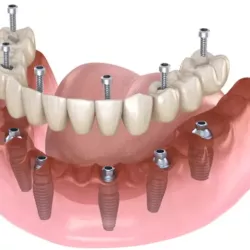Preventing Injuries to Baby Teeth
Children randomly damage their primary teeth when they play contact sports, fall down the stair, fall on the sidewalk, etc. Your dentist may be able to fix the tooth and if not, as long as the nerves, blood vessels and the adult tooth underneath is healthy, damage to a baby tooth is not a huge tragedy however, if an accident has happened to the child’s primary tooth, your child should see a dentist promptly.
My name is Dr. Ellie Nadian from Pure Dentistry dental clinic. An emergency dentist Brisbane Southside. I enjoy treating and helping children of all ages. Often we get urgent phone calls from anxious parents about their child’s broken baby tooth. A broken baby tooth requires different care from a broken adult tooth. A knocked out adult tooth should be put back into the tooth socket with care. Unlike an adult tooth, a baby tooth which is entirely out should not be placed back into the socket and parents should take their child to their dentist as quick as possible.
Your dentist tries to examine and perform required repair to nerves or blood vessels and ensure the accident has not damaged the permanent tooth underneath the primary tooth and it is safe to grow to its normal and healthy shape.
Your child is going to lose their baby teeth at some point in future however, it does not mean that baby teeth are not important. Health primary teeth provide complete chewing and support proper digestion. Clear speech and good appearance are also supported by healthy teeth.

Crowding due to Early Loss of a Baby Tooth
If as a result of an accident a baby tooth is lost too early, other adjacent growing permanent teeth can naturally drift to fill the produced empty space. Their shift makes it difficult for the permanent tooth underneath to find the room that once belonged to it.
Growing adult teeth reply on primary teeth as position holders, an extracted baby tooth may lead to future tilting or crowding of the permanent tooth so it is important to have your child’s oral health monitored by your dentist. The frequency of visit to the dentist depends on some factors like the child’s eating habits, their quality of brushing, genetics and relative conditions of their teeth. As a general rule every six month is recommended but your dentist should be able to advise the required frequency of visits.
Cracked Baby Tooth
If a baby tooth is cracked, keep the affected area clean and rinse the mouth with lukewarm water. To reduce swelling you can use cold compress. If you can find the broken piece, wrap it in some clean wet towel make an emergency dental appointment and take it with you. The treatment may include smoothing any sharp edges caused by the accident.
Food Caught Between Teeth
See if you can gently remove it from your child’s teeth with a dental floss. If unsuccessful, do not try to remove it with sharp or dangerous tools. Just make an appointment with your dentist.
Damaged or Bitten Tongue and Lip
If the accident has caused damage to the child’s tongue or lip and the bleeding has not stopped, you should make an emergency appointment with your dentist. If you suspect a broken jaw, you should seek urgent emergency care. You can use a cold compress to keep swelling down.
Baby Bottle Tooth Decay
Early childhood caries or tooth decay in toddlers is known as baby bottle tooth decay. All baby teeth are at risk of decay when they are exposed to sugar that exists in food or drinks but the risk of decay in the upper front teeth is the highest.
Tooth decay is a disease caused by bacteria. Cavity-causing bacteria may be passed from the care-giver to the infant through saliva. Therefore, decay is preventable.
The key to a lifetime of oral health is starting early! Find a good dentist.
Some Baby Teeth Care Advice
- Avoid exchange of Saliva with infants
- Avoid sharing spoon
- Avoid sharing licking pacifier
- Clean infant gums with a clean washcloth (to prevent bacteria build up)
- Schedule the first dental visit when first tooth appears
- When baby teeth begin to come in, brush them twice a day
- Use kid’s brushes and a tiny amount of toothpaste
- When your children are old enough and can brush, supervise their brushing
- Remind your child not to swallow the toothpaste
- Daily flossing should start as soon as teeth touch each other
- Take your child for regular dental check-ups with your dentist

Dr. Ellie Nadian is a registered dentist in Queensland Australia. She enjoys children's dentistry and making each visit a fun experience for your little one. Phone: (07) 3343 4869, Address: 11/1932-1974 Logan Rd, Upper Mount Gravatt QLD 4122
More to Read:
Previous Posts:


